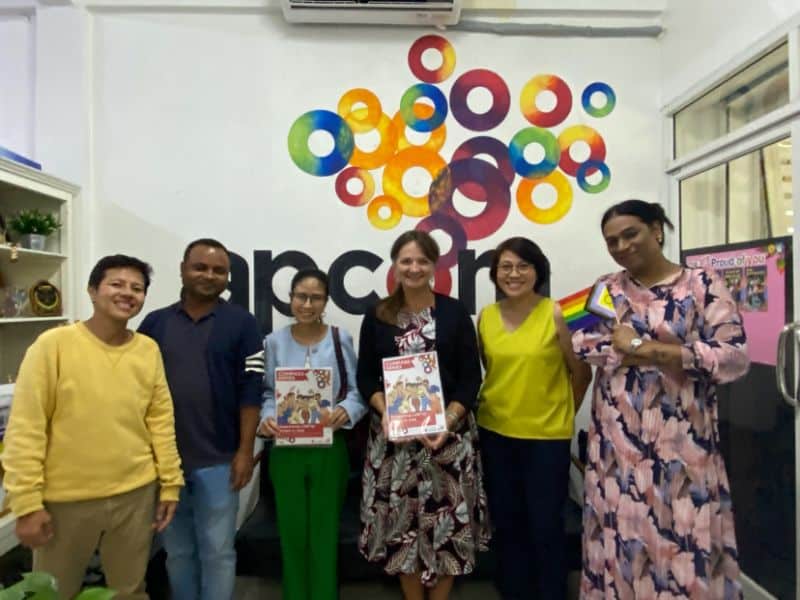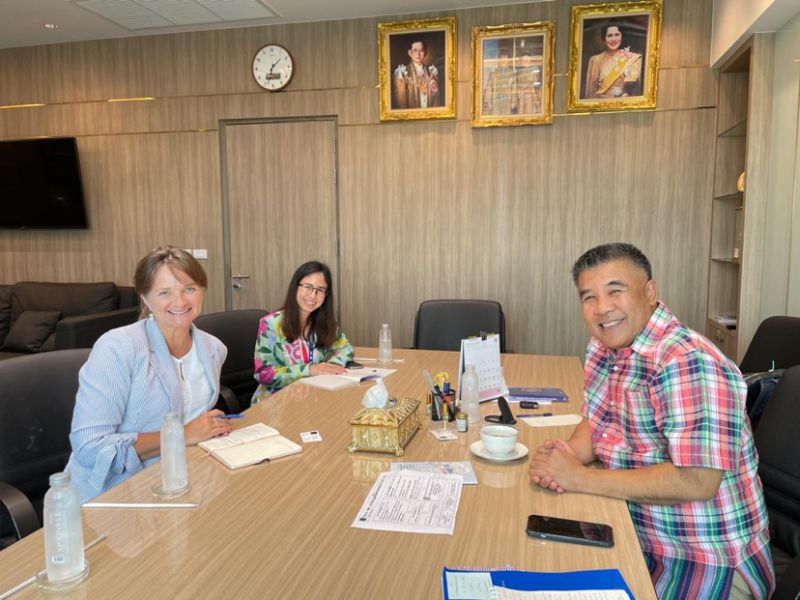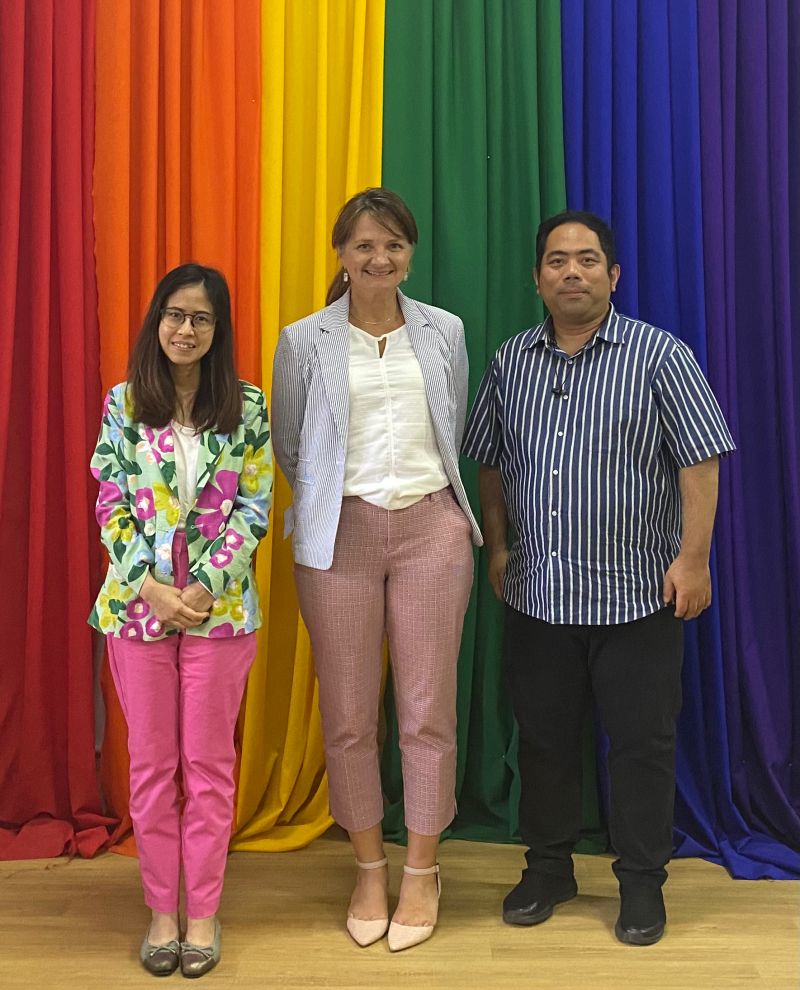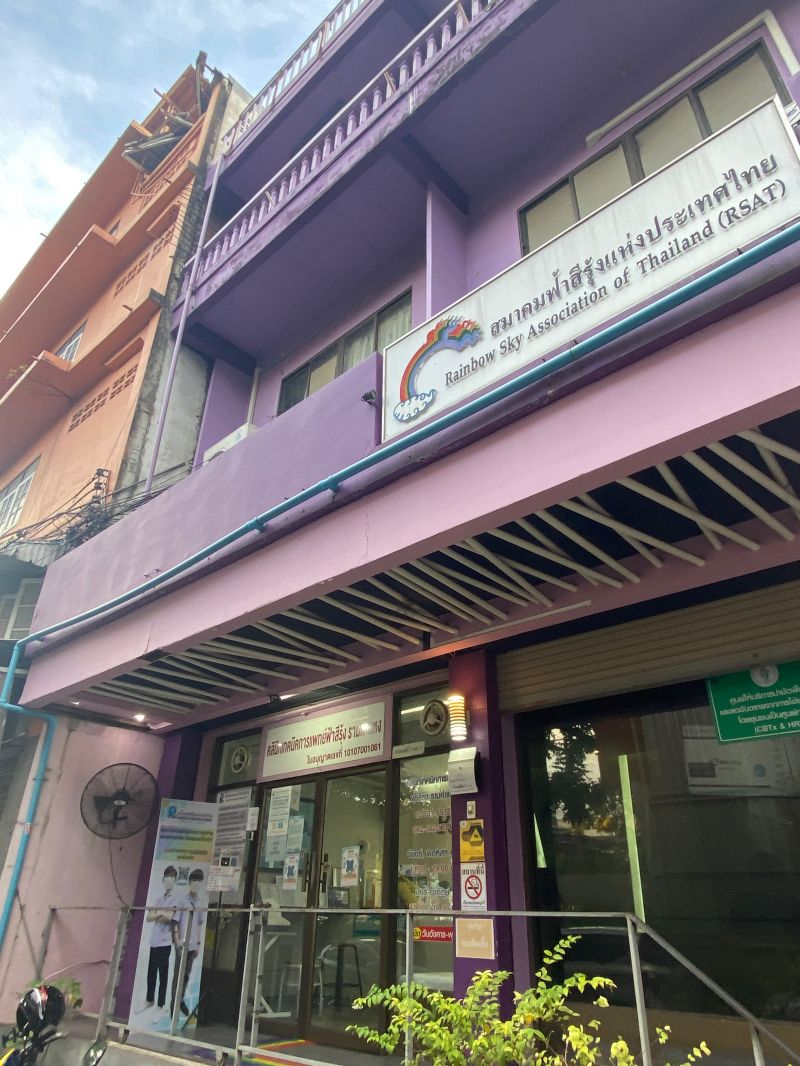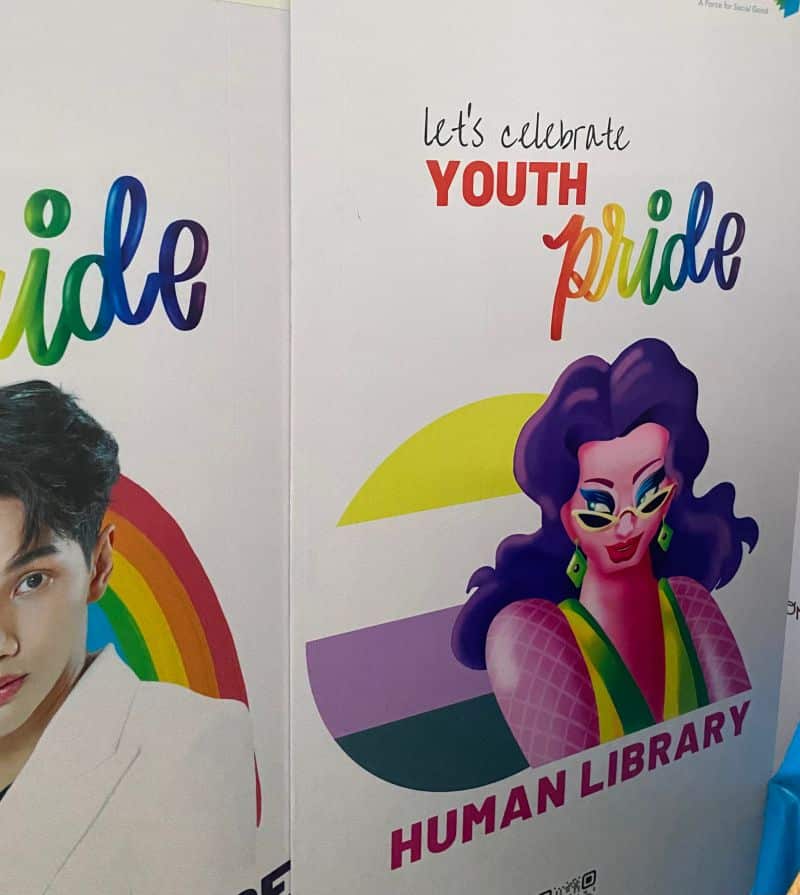Carolyn Tanner on LGBTQI+ Rights in Thailand
By Joseph Menard-Hudon, Communications Intern, TAP-EDM/ Alinea
The Technical Assistance Partnership (TAP) initiative implemented by Alinea International and funded by Global Affairs Canada is working in collaboration with an advocate for Human Rights, Equity, and Justice Carolyn Tanner and Thailand’s Ministry of Justice’s Department of Rights and Liberties Protection to support a more inclusive and welcoming workplace for members of the LGBTQ+ community.
In this insightful interview, Joseph Menard-Hudon explores the realm of LGBTQI+ rights and human rights with Carolyn. She offers insights into how Canada’s expertise is shaping LGBTQI+ rights globally, especially in Thailand.
Joseph: How did you first become interested in human rights and LGBTQ+ issues? How does your career within TAP-EDM align with your interests?
Carolyn: I think I’ve always had a pretty strong social justice spirit and sense of what’s right and wrong. Ever since I was a kid, I wanted to be a lawyer and use the law as a tool for change. I think human rights are fundamental, they’re indivisible, and they apply to everyone, regardless of their country’s legal framework. They are inherent, and we’re born with them.
So, when I think about this role with TAP and Alinea and our role with the Thai Government, I know it’s an interesting opportunity. Canada’s recognition of equality and non-discrimination rights for people based on their gender identity, gender expression, and sexual orientation is leading the way legislatively, and it’s fascinating to bring that lens to a country like Thailand that wants to model best practices.
Joseph: In what ways is Canadian expertise valuable in the promotion of LGBTQI+ rights globally?
Carolyn: The goal of any international partnership between two governments is to model and bring forward best practices in collaboration with one another. It’s essential that Canada brings knowledge and expertise that comes from our own context and applies it within an international context, adapting it to work for Thailand. Our role is to work with the Thai Government, understand gaps and opportunities, and implement changes to create a sustainable partnership. This partnership should not only include LGBTQI+ community members but also ensure they feel a sense of belonging in the workplace.
Joseph: What are some needs that members of the LGBTQI+ community in Thailand face and that are being addressed by TAP’s initiative?
Carolyn: I’m not speaking on behalf of the LGBTQI+ community in Thailand, but research by organizations like the World Bank and UNDP highlights some key areas. Discrimination and harassment, both in hiring and retention and promotion processes, is a significant issue. Members of the LGBTQI+ community report feeling discriminated against and the need to hide their identity. Lack of visibility and inclusion, even once employed, leads to a feeling of not belonging. TAP’s initiative aims to address these issues by working with the Thai Government to create a more inclusive and equitable environment.
Joseph: In what ways does this initiative align with the United Nations’ sustainable development goals (SDGs) on gender equality, and peace, justice and strong institutions?
Carolyn: There are specific ways in which these objectives intersect with the initiative’s goals and actions. When we talk about gender identity, gender expression, and gender equality, it is crucial to move beyond the binary understanding of men and women. We must actively consider the experiences of non-binary and transgender individuals.
While gender equality discussions often focus on addressing discrimination against women, we must acknowledge that gender is not limited to a binary concept. To truly achieve gender equality, we need to recognize the multiple layers of oppression and discrimination that individuals may face based on their gender identity and expression, as well as other factors like sexual orientation, race, age, and disability. It’s essential not to treat LGBTQI+ community members as a single entity but to address the specific barriers they encounter based on their unique identities.
As for peace, justice, and strong institutions, the Thai Ministry of Justice and the Department of Rights and Liberties Protection have an opportunity to set an example as an equitable and inclusive workplace for 2SLGBTQI+ individuals, showcasing what a responsible institution looks like in terms of inclusion. Additionally, we’ll examine how the Ministry of Justice can fulfill its international human rights obligations related to gender equality, non-discrimination, and LGBTQI+ inclusion transparently and accountably.Top of Form
Joseph: In what ways does this initiative align with Canada’s Feminist International Assistance Policy?
Carolyn: Canada’s Feminist International Assistance Policy emphasizes gender equality and the empowerment of women and girls. In my view, it’s crucial to consider not only the empowerment of women and girls but also the empowerment of transgender women and girls.
To truly address everyone’s needs, we must intentionally recognize how growth and change affect marginalized communities, including LGBTQI+ women and girls who face distinct barriers based on factors such as socioeconomic status, race, age, or disability.
Joseph: How do we create a safer space for LGBTQ+ people in Thailand, especially transgender individuals?
Carolyn: In my perspective, the concept of a dichotomy is evident in various contexts, even here in Canada. Despite our robust legal framework protecting the rights of the two-spirit and LGBTQI+ community and prohibiting discrimination, we are witnessing a rise in hate crimes and threats to the equality of 2SLGBTQ+ members.
It’s clear that while there is support for inclusive laws and policies, real change in culture and practice requires intentionality. To combat stigma, discrimination, violence, and exclusion, we must create safer spaces for LGBTQI+ individuals. This means actively involving them in the process, as sometimes allies rush ahead without understanding the issues.
Privacy and confidentiality are crucial, as not everyone can safely disclose their gender identity or sexual orientation. Collaboration with those directly affected is essential in the fight for rights. As an ally, you may need to stand in various positions, and observe the situation in order to advance the cause safely and effectively.
